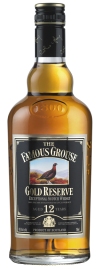Each weekday last week, I was planning on posting a pair of mini-reviews covering selections from the latest additions to the LCBO’s Whisky Shop premium whisky program, and the products in the LCBO’s Spring 2011 Specialty Beer promotion. Due to various factors, I was unable to get Friday’s post done in time, so here it is now…
 Compass Box Spice Tree (LCBO 220806 – $67.25/700 mL)
Compass Box Spice Tree (LCBO 220806 – $67.25/700 mL)
If you know whisky, you’re probably aware of the stir that Compass Box and its founder/whiskymaker John Glaser has caused in the whisky world in the last decade or so. Even as a casual whisky drinker, I’ve been aware of the cult-like status that Glaser has developed for his products, as well as the controversy that some of them have caused. (Google “John Glaser” and “Scotch Whisky Association” together to get a taste of the latter.) In simple terms, Glaser obtains whiskies from various distilleries, combines them, and then matures the blends in different woods to create artisanal blended whiskies that are ranked as high as premium single malts by many aficionados. Spice Tree is one of Glaser’s Signature Series whiskies, and the appropriateness of the name comes clear from the moment it’s poured, as big notes of clove and ginger come forward, with supporting notes of cinnamon, vanilla and orange peel. Ginger dominates the palate as well, with toasted oak, vanilla and cinnamon behind, along with a developing hint of nutmeg, and a whiff of wood smoke.
 Gouden Carolus Hopsinjoor (LCBO 211284 – $3.10/330 mL)
Gouden Carolus Hopsinjoor (LCBO 211284 – $3.10/330 mL)
Just as the whiskies of Compass Box are considered unorthodox, so too can Gouden Carolus Hopsinjoor be looked at as a bit of an oddity, and a product of a modern and experimental beer culture. For years, the ales of Belgium have been known to emphasize aromas and flavours produced primarily by malt and yeast, with hops playing a backing role. But more recently, as the hops-forward beers favoured by many American breweries have started filtering back to the Old World, some brewers there have been cutting loose and beefing up the hops in their recipes. Hopsinjoor is one of those beers, brewed using four strains of hops, each added at a different point in the brewing process to bring out their aromas and flavours to full effect. It pours a beautiful golden colour with a vague haze and a huge cap of rocky white foam. Forcing their way through the head are rich aromas of peppery yeast, fruits like pineapple and orange, some lemon zest, and a slightly medicinal pine-like note. The body is quite active, giving a crisp and effervescent mouthfeel that cleanses the palate and lets the hops shine through in the flavour, with notes of grapefruit, pine sap and cut grass, along with hints of banana and pineapple, and a bit of pepper in the finish.
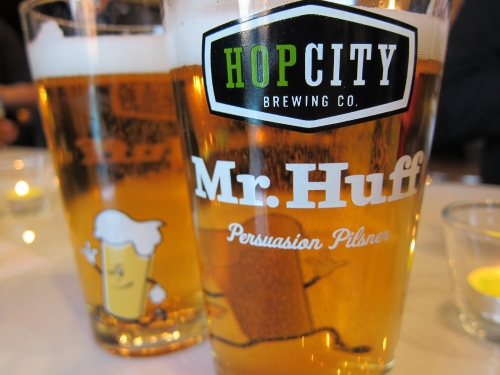

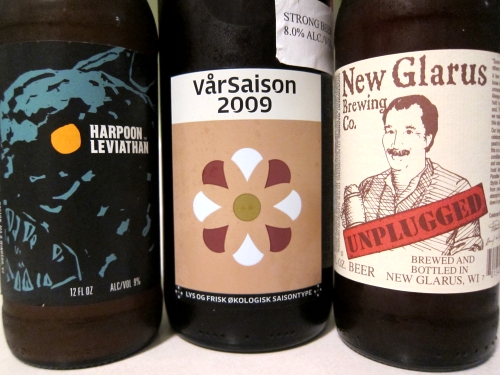
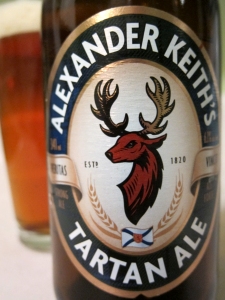 Did you know that today is Tartan Day in Canada? Neither did I until I got an email last week from Adam Grant at The Monks Table, a great pub and restaurant in midtown Toronto, announcing that April 6th is officially recognized as Tartan Day – a day to celebrate Canada’s Scottish/Celtic heritage – and that he’d be holding
Did you know that today is Tartan Day in Canada? Neither did I until I got an email last week from Adam Grant at The Monks Table, a great pub and restaurant in midtown Toronto, announcing that April 6th is officially recognized as Tartan Day – a day to celebrate Canada’s Scottish/Celtic heritage – and that he’d be holding 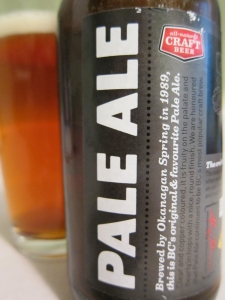 Way, way back in the days when
Way, way back in the days when 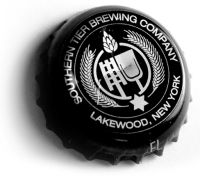 For my Torontonian readers, here’s something pretty cool that’s coming up:
For my Torontonian readers, here’s something pretty cool that’s coming up:



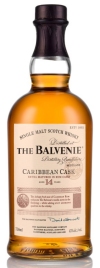

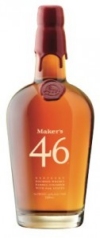 Maker’s Mark
Maker’s Mark Amsterdam
Amsterdam